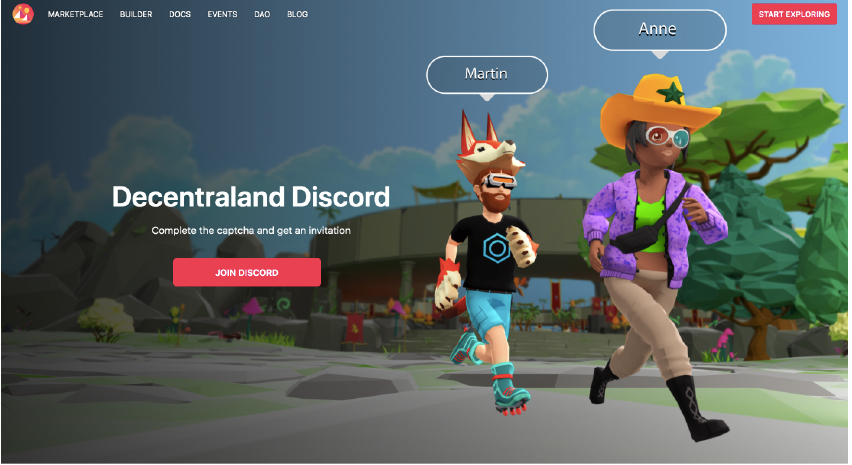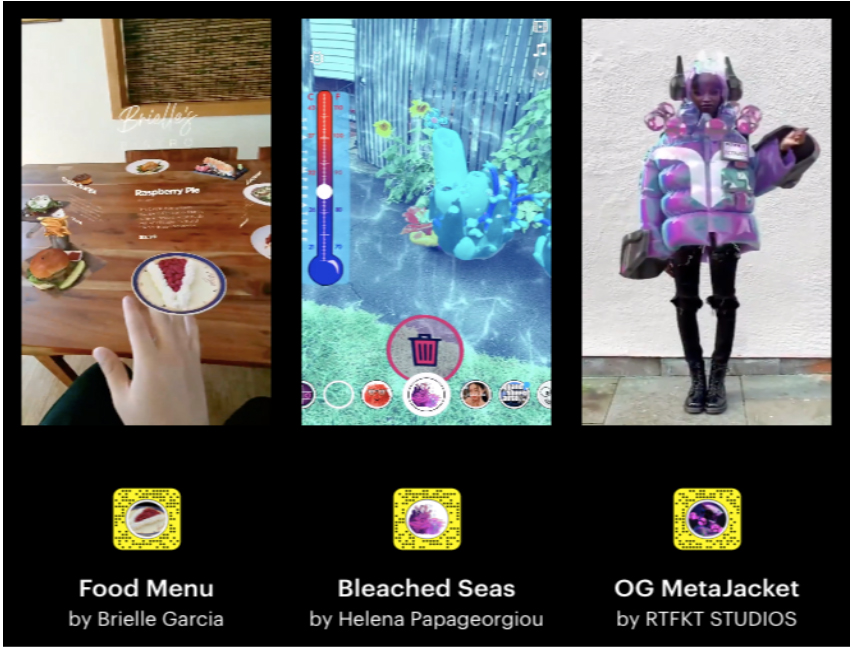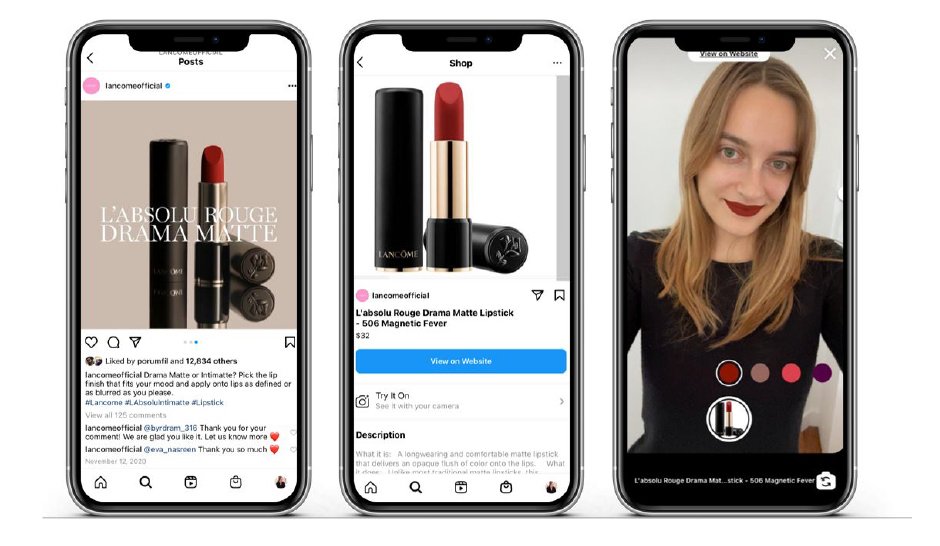
DIpil Das
Metaverse Latest
Metaverse technologies and virtual gaming have surged in popularity during the Covid19 pandemic and are continuing to evolve, grow and converge each month. Coresight Research has identified the expanding metaverse as a key trend to watch in global retail in 2022 and beyond. Our Metaverse Latest series provides regular updates on metaverse developments, showing how key players and new entrants are seizing opportunities in the space. We also discuss metaverse trends we have seen recently. In this report, we present developments as of May 2, 2022.Recent Metaverse Developments
Virtual Worlds and Platforms- On April 20, 2022, Cardalonia, one of the first metaverse projects based on blockchain (the Cardano blockchain platform) launched a cryptocurrency token. Cardalonia is a medieval-themed world for users to create their own experiences and join clans to complete tasks together.
- On April 21, 2022, gaming developer Paradox Studios revealed a new play-to-earn blockchain game, The Paradox Metaverse. The metaverse, working with several digital designers, aims to be a realistic version of the world, where players collect tokens and make connections along their journey.
- On April 25, 2022, Bored Ape Yacht Club, creator of one of the most popular NFT collections, launched its own metaverse platform, named Otherside. The initial land sale featured 100,000 land NFTs (non-fungible tokens), which raised nearly $300 million for the company.
- On April 26, 2022, Metaverse Group, a metaverse real estate platform, announced it had purchased plots of land in SuperWorld with the intention of developing it for entertainment and shopping.
- On April 27, 2022, in a large step for blockchain interoperability, The Sandbox, built on Ethereum, and Star Atlas, built on Solana, announced a collaboration in which contestants from either platform will participate in contests using The Sandbox creator tool VoxEdit, with winners receiving crypto rewards.
- On April 28, 2022, German-based soccer media application OneFootball, which aims to provide immersive fan experiences and sell digital assets, announced its entry into the metaverse after raising $300 million from investors, which included The Sandbox owner Animoca Brands and blockchain gaming company DappRadar.
- On April 21, 2022, Vanity Fair Italia announced that it would launch a new metaverse project, called MetaVanity. In collaboration with NFT company Valuart, it is building an experience inspired by the Pantheon in Rome, featuring 12 virtual exhibitions.
- On April 21, 2022, financial services company Fidelity celebrated the launch of its immersive experience in Decentraland, which will be used as a new education tool for young investors.
- On April 21, 2022, Hong Kong’s Times Square mall, located in Causeway Bay, partnered with metaverse infrastructure platforms Bunny Warriors and AiR Metaverse to produce a replica of the mall in the virtual world. The mall hopes to attract more foot traffic in a challenging time given the ongoing pandemic.
- On April 22, 2022, automakers Nissan and Toyota both announced metaverse initiatives. Nissan created a virtual version of its Nissan Crossing Gallery located in Tokyo’s Ginza District using US startup VRChat. Tokyo has developed a virtual workplace for employees to meet and collaborate using avatars.
- On April 22, 2022, streetwear brand Mishka announced a collaboration with men’s health charity Movember to launch NFTs aimed at raising awareness for testicular cancer, incentivizing frequent self-checks among young males.
- On April 22, 2022, luxury watchmaker DWISS launched an exclusive NFT collection and will explore the possibility of bringing DWISS-based wearables to avatars in both Decentraland and The Sandbox.
- On April 23, 2022, UK-based luxury department store retailer Harvey Nichols launched an NFT retail store in Hong Kong. The space will feature digital artwork from NFT collections such as CryptoPunks and Doodles, with customers having the opportunity to make in-store purchases with credit cards or cryptocurrency.
- On April 25, 2022, Samsung announced that it had participated in a $25 million funding round for a South Korean-based metaverse startup, Doubleme, which aims to launch a virtual platform, Twin World, providing users with the opportunity to create AR (augmented reality) experiences within physical locations.
- On April 25, 2022, after months of keeping the contents of the MNLTH NFT collection a secret, RTFKT (owned by NIKE) revealed its Cryptokick digital NFT sneakers with interchangeable skins, which initially sold for over $100,000 each.
- On April 26, 2022, flower retailer 1-800-Flowers.com announced the launch of an NFT collection, minted on the Polygon blockchain, celebrating the bond between a mother and child for Mother’s Day.
- On April 26, 2022, deodorant brand Degree (owned by UK-based consumer goods company Unilever) hosted the “Metathon,” a virtual marathon, on Decentraland. The race was 26.2 (virtual) miles long and took place in the Vegas City district. The goal of the Metathon was to increase accessibility and inclusivity for people with disabilities.
- On April 26, 2022, Rego Restaurant Group, which owns fast-food restaurants Taco Del Mar and Quiznos, partnered with The NFT Agency to give NFT collectors and virtual landowners the opportunity to purchase digital versions of restaurant franchises.
- On April 27, 2022, eyewear brand Serengeti launched an AR experiential tool which allows customers to try on virtual sunglasses and experience the brand’s proprietary lens technology.
- On April 28, 2022, Walmart-backed India-based e-commerce giant Flipkart forayed into the metaverse, announcing a series of Web 3.0 initiatives aimed at facilitating commercial transactions in virtual settings.
- On April 28, 2022, fashion designer Philipp Plein hosted a launch party in Decentraland for his physical London crypto concept store. The store will feature NFT artwork available for purchase with cryptocurrencies and galleries dedicated to digital and AR displays.
- On April 28, 2022, France-based luxury brand Dior held a metaverse exhibition in China in partnership with the parent company of fashion magazine iWeekly. Dior showcased its fall 2022 menswear collection in an interactive display in the “Meta Ziwu” virtual space.
- On April 29, 2022, Chinese sportswear retailer Li Ning announced that it would begin selling merchandise with licensed Bored Ape Yacht Club NFTs, based on a single NFT design.
- On April 29, 2022, luxury car manufacturer Mercedes Benz announced that its Formula 1 (F1) team would launch race-inspired NFTs in partnership with cryptocurrency exchange FTX during race weekend in Miami.
- On April 30, 2022, Logitech hosted a virtual music award show, Logitech Song Breaker Awards, featuring singer Lizzo, on Roblox. The awards ceremony, which garnered 500,000 views last year and over 1 million this year, is honors content creators who are influencing the music scene.
- On May 2, 2022, The Icee Company, a US beverage company, announced its intention to released branded NFTs in partnership with the Chronicle marketplace. The collection gives fans the opportunity to purchase limited-edition NFTs based on their favorite flavors.
- On May 2, 2022, Camper & Nicholsons International, a world leader in luxury yachting and related merchandise, selected BitPay to begin accepting cryptocurrency payments from customers, tapping into the massive crypto market.
- On May 2, 2022, beverage company Coca-Cola announced that its pixelated flavor born within the metaverse, Coca-Cola Zero Sugar Byte, would be available for customers and fans to purchase for a limited time in the real world.
- On April 20, 2022, AR audio provider Voicemod reported that it had launched its software kit for designers and creators to use in third-party applications (virtual worlds) for hyper-realistic sounds and avatar noises.
- On April 20, 2022, Coinbase announced that its social NFT marketplace is available in a limited beta version for a select number of users, with users able to comment and downvote/upvote in a global feed.
- On April 21, 2022, Ethereum rival Algorand blacked out Times Square in New York City to celebrate becoming carbon negative. The blockchain announced that it had introduced a smart contract which ensures that the carbon footprint of each transaction is offset by the party making it.
- On April 25, 2022, fintech company Stripe announced that it had started a test for Twitter creators and users to receive payments in cryptocurrencies over the Polygon network. It hopes to launch the service in over 120 countries by the end of the year.
- On April 25, 2022, NFT-based luxury metaverse platform Trace Network Labs introduced its first product, Buddy, which enables users to create hyper-realistic digital avatars kitted out with the latest wearables. The platform has ambitious plans to reach 1 billion users during the next five years.
- On April 25, 2022, aiming to stimulate interest and teach potential customers about virtual gaming and reality, Meta Platforms announced that it would launch its first ever physical show to display virtual gadgets for customers to test out, such as the Oculus Quest 2.
- On April 25, 2022, digital marketing firm Magnetic Mobile released an AR application, ChargeAR, for brands and retailers to run AR promotions and advertisements that display 3D products (through smartphones) alongside physical products in stores.
- On April 25, 2022, China-based headset developer Nreal announced that its lightweight AR headset, which resemble a pair of sunglasses, are available in the UK from spring 2022.
- On April 27, 2022, the Central African Republic became the second country, after El Salvador, to begin accepting Bitcoin as legal tender.
- On April 27, 2022, Business Insider reported that weekly NFT sales, which, by dollar value and not transaction volume, had been flatlining, surged by 85% to $456 million, driven by steady sales of NIKE’s CloneX, Bored Ape Yacht Club and recently minted Moonbirds.
- On April 28, 2022, during Snap’s 2022 Partner Summit, the social media company announced a series of new AR tools aimed at enhancing Snapchat’s shopping experience. One such tool is “Dress Up,” a destination within the application dedicated to AR fashion, looks and trends.
- On April 27, 2022, China-based technology giant Huawei filed a series of patents for “foldable” AR spectacles, which are lightweight and compact by design, fitting on users’ faces like a pair of normal glasses.
A Key Trend We’ve Seen Recently: Social Networks Provide Portals to the Metaverse
Discord Hosted in the Decentraland metaverse, Discord is an instant-messaging and digital distribution platform that creates online communities for certain topics, trends and shared interests. It is geared toward gaming enthusiasts, providing ways for players to find one another and coordinate game plans/in-game activities. Users can communicate and send digital information/assets privately through text, livestreams, voice calls and video calls in either private chats or invite-only communities called “servers.” Initially released in May 2015, Discord is growing quickly; it expanded its user base from roughly 100 million users in June 2020 to more than 150 million users by June 2021. Discord is currently a Web 2.0 service. The virtual (Web 3.0) version would enable its communities to be fully immersive, enhancing opportunities for user engagement with brands and retailers. Discord has not announced any Web 3.0 initiates as of yet, but we believe that its servers will set the precedent for widespread immersive metaverse communities. One tool that Discord utilizes that will be relevant in Web 3.0 is its artificial intelligence (AI)-driven bots, which automate tasks, such as adding content and controlling members, on Discord servers. Furthermore, servers based in virtual and immersive games present opportunities for the exchange of cryptocurrency, with crypto bots allowing users to automate exchanges. Invite-only servers also enable developers to create decentralized autonomous organizations (DAOs)—groups of users without central leaders (who pay for membership) formed to accomplish certain tasks and goals, such as maintaining governance across blockchain projects and decentralized social applications. Becoming involved with DAOs is how individual users, groups or businesses can have a say in platform and in-world decisions. [caption id="attachment_147331" align="aligncenter" width="700"] Decentraland’s Discord Server
Decentraland’s Discord Server Source: Decentraland [/caption] Upstream Upstream is a relatively new social network that was released in October 2020 and shares a similar structure with Discord, offering solutions for creating “Collectives” and engaged communities, both of which are full-stack, requiring no coding or technical experience to set up. Functioning as the LinkedIn of the virtual world, participation in Upstream’s communities is free, and users can discover virtual events (including those in worlds such as Decentraland and The Sandbox) and “office hours” to virtually meet other professionals while remaining engaged through the community feed. Collectives are more advanced versions of communities; these shared groups are able to pool funds together and operate with the same wallet. Members can contribute funds to the community and receive voting rights. Upstream Collectives are one of the simplest ways to form DAOs. Snap Released for general use in 2011 and gaining significant popularity in the following few years, Snapchat (operated by Snap) exploded onto the social media scene but then saw slow growth. However, in recent years, Snap has been focusing more on AR, camera and lens technologies. One of Snapchat’s most useful products for creators is the Lens Studio, which utilizes advanced Landmarker and camera tracking technology to allow artists, users and brands to create AR experiences based on real-world locations, which they can share with hundreds of millions of global Snapchat users. Over 75% of Snapchat’s global user base interacts with AR every day to communicate, play and learn, according to Snap. Snapchat also has an AR shopping catalogue, which utilizes tracking technology to overlay clothing and accessories onto customers’ bodies. This allows brands (including NIKE’s RTFKT, whose OG Metajacket is pictured below), retailers and creators to sell digital or real-world clothing to customers before they have even seen or tried on the physical item in person, significantly expanding their customer bases globally. Brands can also seamlessly connect with talented and top AR creators in Snapchat’s creator marketplace. Building on its AR lenses, Snap has developed spectacles—lightweight glasses that provide users with real-time, location-based AR elements utilizing camera and tracking technology to overlay digital elements to the real world as they walk and travel around. In the near future, the spectacles may feature 5G capability, connecting customers to virtual experiences, without the need for a smartphone. The spectacles range in cost from $150 to $380. [caption id="attachment_147332" align="aligncenter" width="701"]
 User- and brand-created AR offerings and experiences via Snapchat
User- and brand-created AR offerings and experiences via Snapchat Source: Snap [/caption] Instagram Initially created in 2010 and sold to Facebook (now Meta) in 2012, Instagram has a massive user base of over 1.4 billion. Like Snapchat, Instagram has also been experimenting with AR filters that utilize advanced camera and facial tracking technologies for increased accuracy. The platform has an effects gallery for users to browse; brands and retailers can also offer their own customized effects directly from their profiles, which users can save for future use. Effects can also be seen on “Reels”—short, entertaining videos that many brands and retailers have utilized for advertising. In addition, Instagram provides an AR shopping tool that enables customers to virtually test products and accessories before purchasing. For example, Facebook partnered with L’Oréal and Spark AR, an AR studio, to bring augmented makeup looks to its filters, utilizing camera tracking and AI. Customers can also navigate to a brand’s profile to test AR products. [caption id="attachment_147333" align="aligncenter" width="701"]
 AR makeup looks on Instagram
AR makeup looks on Instagram Source: WWD [/caption] Digital avatars created from creation tools on Oculus Quest 2 are also now available on Instagram, Facebook and Messenger, providing the potential of interoperability within Meta’s universe of social media applications and virtual games such as the fully immersive Horizon Worlds, accessible via Quest. Starting in May 2022, Instagram is allowing select creators and collectors to share the NFTs they have purchased or created; the feature will eventually be available for all users. Creators will be able to connect their digital wallets and automatically tag both the creator and collector. No fees will be associated with posting or sharing the NFTs and, to improve transparency, Instagram is collecting and organizing data from public blockchains, including Ethereum, Flow and Polygon.